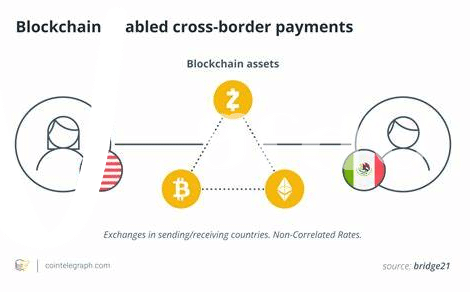Understanding Bitcoin Regulations 📜

Bitcoin regulations are a crucial aspect of navigating the cryptocurrency landscape, impacting how users conduct transactions and interact with digital assets within the legal framework. Understanding the rules and guidelines set forth by governing bodies is essential for individuals and businesses utilizing Bitcoin in Kazakhstan. By delving into the nuances of these regulations, users can make informed decisions, mitigating risks associated with non-compliance and ensuring a smooth transfer of funds across borders. Awareness of the legal landscape surrounding Bitcoin not only promotes transparency and security but also sets the stage for future developments and adaptations within the cryptocurrency ecosystem.
Cross-border Transfers in Kazakhstan 💸
Cross-border transfers from Kazakhstan present unique opportunities for Bitcoin users looking to engage in international transactions. With the rise of global commerce, the need for efficient and cost-effective cross-border payment solutions has become more pressing than ever. Kazakhstan, situated at the crossroads of Europe and Asia, holds strategic importance in facilitating these transfers. The ease of transferring funds across borders using Bitcoin has significant implications for businesses and individuals alike. By leveraging the decentralized nature of cryptocurrencies, users can bypass traditional banking systems and enjoy faster transaction times and reduced fees. However, navigating the legal landscape surrounding cross-border transfers is crucial to ensure compliance with local regulations and mitigate any potential risks. As the adoption of Bitcoin continues to grow in Kazakhstan, understanding the legal frameworks governing cross-border transfers will be essential for stakeholders to maximize the benefits of this innovative technology.
Legal Implications for Bitcoin Users 🔒

Bitcoin users in Kazakhstan face a unique set of legal implications, with regulations evolving to encompass this innovative digital currency. The current landscape presents challenges in terms of taxation, anti-money laundering, and know-your-customer requirements. While the overarching aim is often to mitigate risks associated with illicit activities, navigating these legal frameworks can prove complex for individuals utilizing Bitcoin for legitimate transactions. Clarity on reporting obligations, regulatory compliance, and the distinction between personal and commercial use is crucial for users to operate within the bounds of the law securely. The dynamic nature of cryptocurrency regulation further underscores the importance of staying informed and adapting practices to align with the evolving legal requirements in Kazakhstan.
Compliance Challenges and Solutions 🛡️

Navigating the intricate landscape of compliance challenges and solutions in the realm of Bitcoin transactions can be a daunting task for users in Kazakhstan. As regulations evolve and adapt to the dynamic nature of cryptocurrencies, ensuring full compliance with legal frameworks becomes paramount. From addressing issues related to anti-money laundering (AML) procedures to meeting reporting requirements, Bitcoin users must stay vigilant to mitigate risks. Implementing robust Know Your Customer (KYC) protocols and utilizing secure payment gateways are essential steps towards maintaining compliance. Moreover, fostering collaborations with regulatory bodies and seeking guidance from industry experts can provide valuable insights into navigating the complex regulatory environment. By proactively engaging with compliance challenges and adopting innovative solutions, Bitcoin users in Kazakhstan can safeguard their interests while contributing to the legitimization of digital assets within the global financial landscape. For further insights on cross-border money transfers involving Bitcoin, refer to a practical guide available at bitcoin cross-border money transfer laws in Jamaica.
Impact of Legal Frameworks on Transactions 💼
The legal frameworks in place greatly influence the smooth execution of Bitcoin transactions within and beyond Kazakhstan. These regulations impact how users navigate the transfer process, from compliance requirements to transaction fees and restrictions. Understanding the legal implications is crucial for individuals and businesses engaging in cross-border transfers using Bitcoin. It shapes the choices they make and the platforms they use for their transactions. With the evolving landscape of cryptocurrency regulations globally, being aware of the local legal framework is essential to ensure seamless and lawful transactions. The impact of these legal structures goes beyond mere rules and guidelines; it sets the tone for the level of trust and security in the Bitcoin ecosystem within Kazakhstan. Consequently, users must stay informed and adaptable to comply with these frameworks while maximizing the efficiency and security of their transactions in the digital currency realm.
Future Outlook for Bitcoin in Kazakhstan 🔮

In the rapidly evolving landscape of cryptocurrency, the future outlook for Bitcoin in Kazakhstan is filled with both promise and uncertainty. As the country continues to grapple with defining clear regulations and guidelines for digital currencies, the trajectory of Bitcoin adoption remains a topic of intense interest. The burgeoning interest from the public, coupled with the government’s stance on digital assets, will play a pivotal role in shaping how Bitcoin is perceived and utilized in Kazakhstan in the coming years.
For more insights on cross-border money transfer laws related to Bitcoin, you can explore the legal frameworks in Italy using the Bitcoin Cross-border Money Transfer Laws in Italy and draw comparisons with the regulations in Iraq as outlined in the Bitcoin Cross-border Money Transfer Laws in Iraq.
